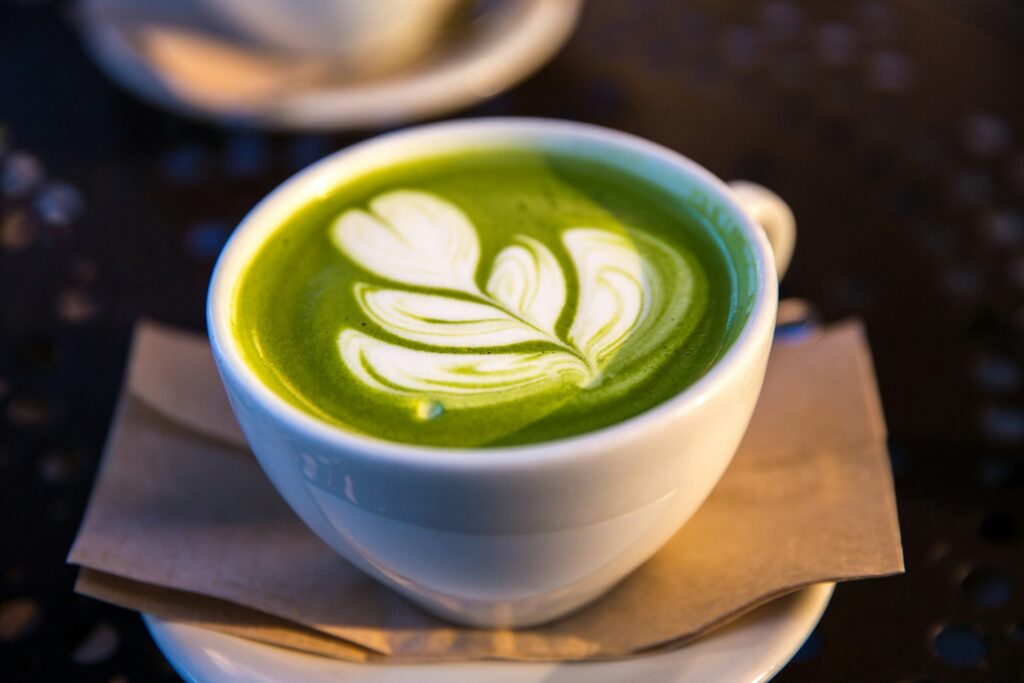The downside of Matcha fever: the popular drink can also cause hair loss
In recent years, matcha has become a real trend: the Japanese green tea in powder form not only adds flavor to lattes, smoothies or desserts, but is also considered by many to be a key element of a healthy lifestyle. Although its beneficial effects include increased metabolism, reduced inflammation, and improved concentration, more and more critics are drawing attention to the potential risks, writes Glamour.
Iron deficiency and hair loss
 According to experts, one of the lesser-known effects of matcha is that it can inhibit the absorption of plant-based iron in the intestinal tract. According to research cited by Vogue, this can be especially problematic for those who already have an iron deficiency—in whom reduced absorption can lead to hair loss. Family physician Heather Viola told Glamour that even one or two cups of matcha can reduce iron absorption by up to 60 to 70 percent, especially when paired directly with an iron-rich meal. This risk may be most significant for vegans, vegetarians, and those suffering from anemia.
According to experts, one of the lesser-known effects of matcha is that it can inhibit the absorption of plant-based iron in the intestinal tract. According to research cited by Vogue, this can be especially problematic for those who already have an iron deficiency—in whom reduced absorption can lead to hair loss. Family physician Heather Viola told Glamour that even one or two cups of matcha can reduce iron absorption by up to 60 to 70 percent, especially when paired directly with an iron-rich meal. This risk may be most significant for vegans, vegetarians, and those suffering from anemia.
Conflicting expert opinions
However, dermatologist Hadley King nuanced the picture: he believes that the antioxidant and anti-inflammatory properties of matcha and green tea support hair health rather than harm it. The debate is not about whether matcha itself causes hair loss, but rather that it can contribute to the worsening of iron deficiency under certain circumstances.
Side effects of excessive consumption
Experts agree that matcha is not dangerous when consumed in moderation, but excessive intake can have a number of unpleasant side effects:
-
anxiety, insomnia, headaches,
-
stomach irritation, digestive problems,
-
risk of lead contamination,
-
teeth discoloration,
-
adverse interactions with certain medications,
-
liver strain.
What do experts recommend?
-
It is worth consuming matcha at least one to two hours before or after iron-rich foods.
-
Vitamin C can increase iron absorption.
-
The recommended daily dose is 2–3 grams.
-
It is advisable to avoid its consumption if you are pregnant, breastfeeding, sensitive to caffeine, have iron deficiency or liver problems.
Overall, matcha remains a popular health trend, but experts warn that moderation is key, especially for those who struggle with iron deficiency.
Related news
Health is decided at the family table – dietitians show the everyday application of the SMART PLATE® nutritional recommendation
🎧 Hallgasd a cikket: Lejátszás Szünet Folytatás Leállítás Nyelv: Auto…
Read more >A fruit day doesn’t cure or sustain you – that’s why most corporate well-being programs don’t work
🎧 Hallgasd a cikket: Lejátszás Szünet Folytatás Leállítás Nyelv: Auto…
Read more >Related news
(HU) A nap mondása
🎧 Hallgasd a cikket: Lejátszás Szünet Folytatás Leállítás Nyelv: Auto…
Read more >Storck Hungária: new sales manager has arrived
🎧 Hallgasd a cikket: Lejátszás Szünet Folytatás Leállítás Nyelv: Auto…
Read more >(HU) A nap mondása
🎧 Hallgasd a cikket: Lejátszás Szünet Folytatás Leállítás Nyelv: Auto…
Read more >








